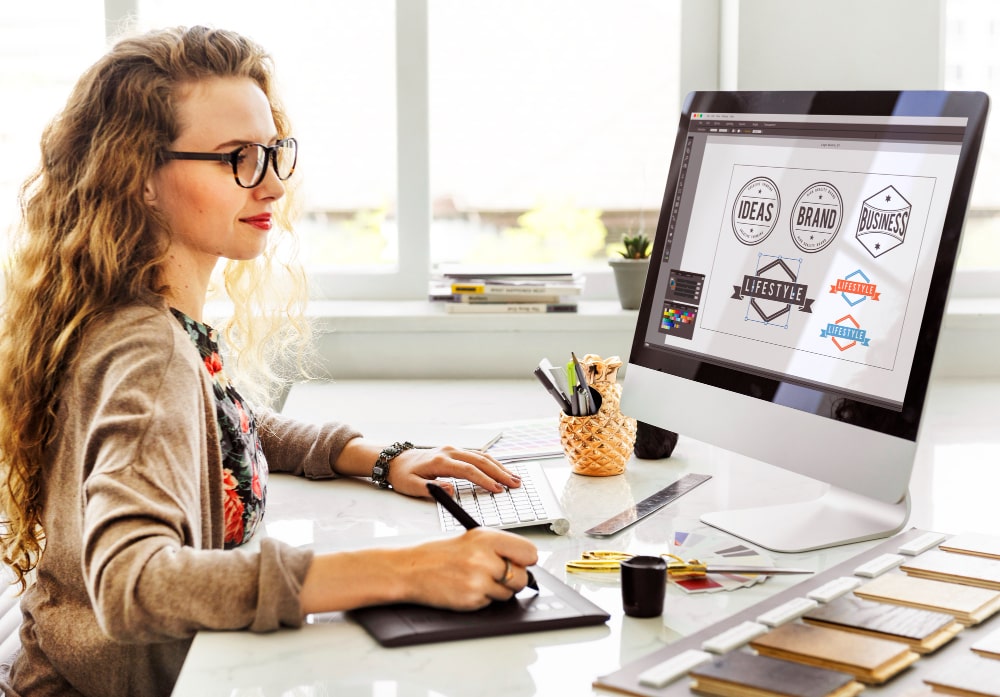Our Blog
Stay updated with the latest insights and strategies in digital marketing.
Unleash Creativity with Graphic Design

Graphic design combines art and technology to communicate ideas through visual content. In today's visually-driven world, effective graphic design is essential for brands looking to make an impact and connect with their audience in meaningful ways.
The Power of Visual Communication
Humans are visual creatures—we process images 60,000 times faster than text. This makes graphic design an incredibly powerful communication tool:
- Visual elements capture attention in a crowded digital landscape
- Well-designed graphics communicate complex ideas quickly
- Visual storytelling creates emotional connections
- Consistent visual identity builds brand recognition
Effective graphic design leverages these aspects of human perception to deliver messages that resonate and are remembered.
Elements of Effective Graphic Design
Great graphic design balances several key elements:
- Color: Strategic use of color psychology to evoke specific emotions and associations
- Typography: Selection of fonts that reflect brand personality and ensure readability
- Composition: Thoughtful arrangement of elements to guide the viewer's eye
- Imagery: Compelling visuals that support and enhance the message
- White space: Strategic use of negative space to create balance and focus
When these elements work in harmony, the result is design that not only looks good but effectively serves its purpose.
Graphic Design Across Platforms
Today's brands need cohesive design across multiple touchpoints:
- Print materials: Business cards, brochures, packaging, signage
- Digital presence: Websites, social media graphics, email templates
- Environmental design: Office spaces, retail environments, event displays
- Motion graphics: Video intros, animations, interactive elements
Each platform has unique requirements and constraints, but a strong design system ensures consistency while adapting to different contexts.
The Design Process
Creating effective graphic design follows a structured process:
- Discovery: Understanding the brand, audience, objectives, and context
- Research: Exploring trends, competitors, and inspiration
- Conceptualization: Developing ideas and approaches
- Creation: Producing initial designs
- Refinement: Iterating based on feedback
- Implementation: Finalizing and preparing files for various applications
This process ensures that design decisions are strategic rather than arbitrary, resulting in work that achieves specific goals.
Current Trends in Graphic Design
While timeless principles remain important, graphic design continues to evolve:
- Minimalism and simplification: Stripping designs to their essential elements
- Bold typography: Using type as a central design element
- Authentic imagery: Moving away from stock photos toward genuine, diverse representation
- Data visualization: Creative ways to make complex information accessible
- 3D and dimensional effects: Adding depth and interactivity
Staying current with trends while maintaining brand integrity requires a thoughtful balance.
Accessibility in Graphic Design
Inclusive design ensures that visual communication reaches all audiences:
- Sufficient color contrast for readability
- Text size and font choices that prioritize legibility
- Alternative text for images in digital environments
- Considerations for color blindness and other visual impairments
Accessible design is not just ethical—it expands your audience and improves the experience for everyone.
Measuring Design Effectiveness
Great graphic design isn't just visually appealing—it achieves objectives:
- Increased engagement with marketing materials
- Improved user experience and navigation
- Enhanced brand perception and recognition
- Better conversion rates and call-to-action responses
Establishing metrics for success helps demonstrate the value of design investments.
Conclusion
Graphic design is far more than decoration—it's a strategic business tool that shapes how audiences perceive and interact with your brand. By investing in thoughtful, purposeful design that balances creativity with strategic objectives, businesses can communicate more effectively, build stronger connections with their audience, and differentiate themselves in competitive markets. In a world where visual communication dominates, powerful graphic design isn't a luxury—it's essential for success.
Ready to Transform Your Business?
Contact us today and let's discuss how we can help you achieve your goals.
Get in Touch